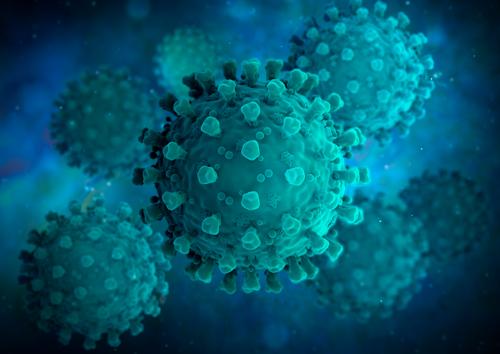The COVID-19 Biorepository is a resource available to BMC and BU investigators and contains biologic samples representing the arc of the pandemic, with samples from the onset in the Boston area and collection ongoing.
As of October 2021, the Biorepository housed over 40,000 individual sample aliquots from over 10,000 unique BMC patients. Our samples represent the diversity and unique characteristics of BMC’s patient population, and are in many cases from patient populations disproportionately impacted by COVID-19.
BMC/BU investigators may submit an application to request samples.
Sample Sources:
Prospective COVID-19 Cohort
Samples were collected from inpatient and ambulatory patients who provided informed consent to participate in the study. Participants were all confirmed positive for SARS-CoV-2 infection and were either admitted to the hospital or seen in an ambulatory setting for treatment. Enrolled participants, therefore, reflect a spectrum of disease severity. A subset of patients were also followed beyond acute infection (i.e., survivors) for sample collection. More than 60% of our cohort participants who contributed samples were persons of color and over 40% had limited English proficiency.
Samples from the cohort study are paired with an extensive clinical and demographic dataset available to investigators who obtain cohort samples. All cohort participants were administered a questionnaire. The questionnaire covers COVID risk factors (e.g., travel, essential work, exposures), signs and symptoms, medical and social history, and substance use. Additionally, a variety of clinical variables are abstracted from the electronic medical record (EMR) for all cohort participants.
Questionnaire data dictionary: REDCap questionnaire data dictionary (Excel Doc)
EMR data dictionaries:
- Inpatient cohort (Excel doc)
- Ambulatory and survivor cohorts (Excel doc)
Clinical Remnant Samples
Clinical remnant samples, i.e., samples initially collected for clinical purposes but which no longer have clinical utility, are retained from both confirmed SARS-CoV-2 infected patients as well as SARS-CoV-2 negative controls. COVID-19 clinical remnant samples are accompanied by a limited dataset, including the following variables:
- Date of sample collection
- Type of sample
- Patient’s SARS-CoV-2 infection status (+ or -)
- Date of patient’s first positive SARS-CoV-2 test (if applicable)
- Day of illness at time of sample collection (i.e., days form first positive test to sample collection date)
- Age
- Sex
Autopsy
Autopsy samples were collected from patients with confirmed SARS-CoV-2 infection and whose families consented for samples to be taken. All autopsy samples are saved frozen and fixed in formalin. Limited quantities exist. Please contact LABS to inquire.
Sample Types:
| Sample Type | Sample Source | Description |
Nasopharyngeal swab
| Cohort | 0.75mL VTM aliquot |
| Clinical Remnant | Whole sample; typically frozen at -80°C day of collection | |
Oropharyngeal swab
| Cohort | 0.75mL VTM aliquot |
| Clinical Remnant | Whole sample; typically frozen at -80°C day of collection | |
Serum
| Cohort | 0.75mL aliquot |
| Clinical Remnant | 0.5mL aliquot; at 4°C for up to 7 days, then frozen at -80°C | |
Plasma
| Cohort | 0.5mL or 1.0mL aliquot |
| Clinical Remnant | 0.5mL aliquot; at 4°C for up to 7 days, then frozen at -80°C | |
| Buffy coat | Cohort | Separated from EDTA tube; stored in liquid nitrogen |
| Saliva | Cohort | 0.6mL aliquot; mixed with OM-505 solution |
| PBMCs | Cohort | 1mL aliquot; 5-10 million cell count per aliquot; stored in liquid nitrogen |
| PAXgeneA | Cohort | Whole sample |
| Urine | Cohort | 1.8mL aliquot |
| Stool | Cohort | 1.8mL aliquot |
Abbreviations: PBMCs peripheral blood mononuclear cells
A RNA stabilization tube produced by BD Biosciences
COVID-19 Biorepository Scientific Review Committee (SRC):
Each COVID-19 Biorepository sample request is reviewed by a committee of faculty members with expertise relevant to COVID-19 science. Sample requests are reviewed based on the following criteria: 1) scientific rigor and reproducibility; 2) aims and hypotheses; 3) feasibility, and 4) available resources.
Current SRC Membership
Co-Chairs
- Chris Andry, PhD
- Stephen Pelton, MD
Committee Members
- Pria Anand, MD
- Ronald Corley, PhD
- Elizabeth Duffy, MA
- Andrew Henderson, PhD
- Heather Hsu, MD
- Catherine Klapperich, PhD
- Jai Marathe, MD
- George O’Connor, MD
- Sushrut Waikar, MD
- Laura White, PhD
 en
en 

 Français
Français Deutsch
Deutsch Italiano
Italiano Español
Español Tiếng Việt
Tiếng Việt Kreyol ayisyen
Kreyol ayisyen